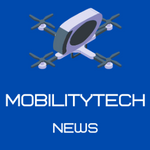Honda to Adopt North American Charging Standard (NACS) for its EV Models in North America from 2025.
September 7, 2023 — TOKYO, Japan – Honda Motor Co., Ltd. today announced that it has reached an agreement with Tesla, Inc. to adopt Tesla’s North American Charging Standard (NACS) for the charging port of its EV models that will go on sale in North America starting from 2025.
In 2025, Honda is planning to launch a new EV model in North America equipped with a NACS port. From that point forward, Honda will continue adopting NACS standards for its models.
EV models the company will launch in North America before 2025, which will be equipped with a Combined Charging System (CCS) port, are also being developed to be compatible with the NACS through the use of a charging adaptor.
In North America, Honda recently announced that it has agreed to establish a joint venture among seven automakers to build a high-powered charging network for EVs with the aim of building a reliable charging infrastructure. In addition to this initiative, Honda has agreed to adopt the NACS to enable its customers to use Tesla Supercharger stations, which will significantly enhance charging convenience.
North American Charging Standard (NACS)
Seven major global automakers – BMW Group, General Motors, Honda, Hyundai, Kia, Mercedes-Benz Group, Stellantis NV – will create a new charging network joint venture that will significantly expand access to high-powered charging in North America. The joint venture will include the development of a new, high-powered charging network with at least 30,000 chargers to make zero-emission driving even more attractive for millions of customers.
With the generational investments in public charging being implemented on the Federal and State level, the joint venture will leverage public and private funds to accelerate the installation of high-powered charging for customers. The new charging stations will be accessible to all battery-powered electric vehicles from any automaker using Combined Charging System (CCS) or North American Charging Standard (NACS) and are expected to meet or exceed the spirit and requirements of the U.S. National Electric Vehicle Infrastructure (NEVI) program.
The joint venture is expected to be established this year, subject to customary closing conditions and regulatory approvals.
Fisker also signed an agreement with Tesla to provide customers with access to the Tesla Supercharger network. Fisker will adopt the North American Charging Standard (NACS)on its first vehicles
in 2025.
The first stations are expected to open in the United States in the summer of 2024 and in Canada at a later stage. Each site will be equipped with multiple high-powered DC chargers, making long-distance journeys easier for customers. In line with the sustainability strategies of all seven automakers, the joint venture intends to power the charging network solely by renewable energy.
Initial plans call for the deployment of charging stations in metropolitan areas and along major highways, including connecting corridors and vacation routes, aiming to offer a charging station wherever people may choose to live, work and travel.
According to the U.S. Department of Energy, as of July 2023, there are 32,000 publicly available DC fast chargers in the United States for use by 2.3 million electric vehicles, a ratio of 72 vehicles per charger. The NREL (National Renewable Energy Laboratory) estimates that 182,000 DC fast chargers will be needed to support 30-42 million plug-in vehicles expected on the road by 2030.
With U.S. electric vehicle sales expected to exceed 50% of total U.S. sales by 2030, the expansion of reliable charging infrastructure will become even more critical to widespread electric vehicle adoption.
The creation of this charging network will ensure that the EV infrastructure will support current and projected EV sales and will foster the adoption of electric vehicles.
Honda will continue offering a reliable and convenient charging environment for its customers to achieve widespread EV adoption and support Honda’s efforts to realize carbon neutrality.

